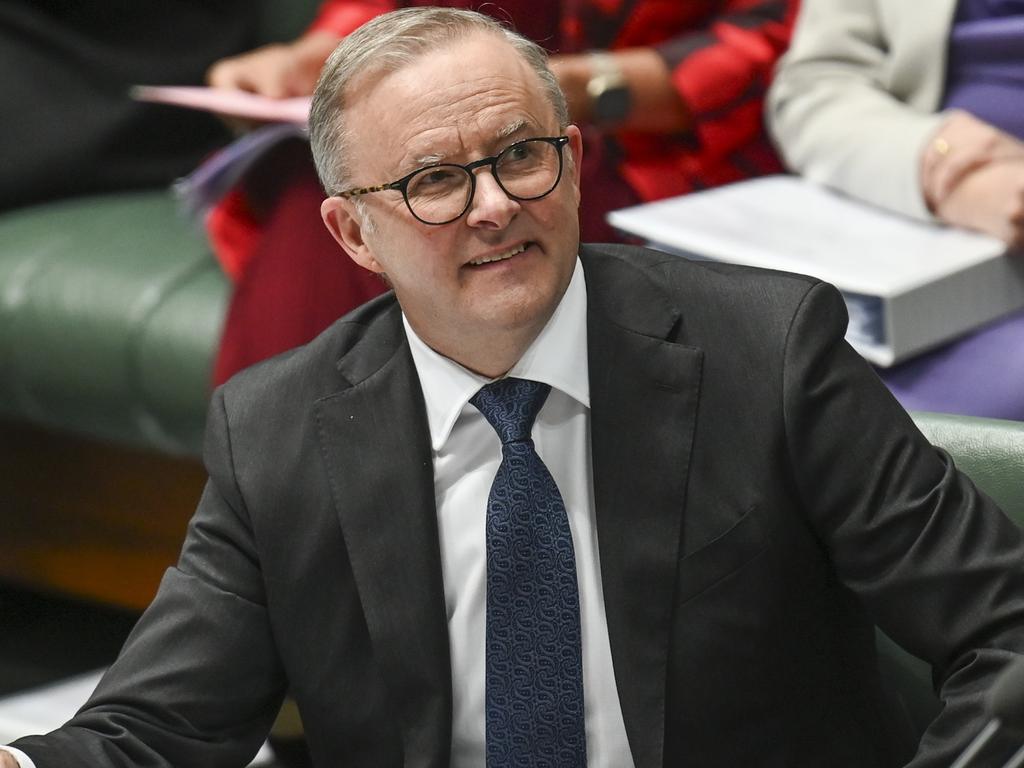PM’s belief the voice will prevail now under challenge as no vote grows organically


The strategy of being economical with detail over a significant alteration to the constitution is slowly killing the yes camp’s ability to present a unified message.
There is no dispute that the final week of parliament before the winter break has been a politically damaging one for both the government and the voice campaign. It has been divisive, evasive and confused.
Independent Kylea Tink on Wednesday suggested that people needed to stop looking to the “circus” of Canberra” to get informed on the debate.
“It‘s the worst of party politics in Canberra. I’m much more concerned for the conversations people are having on the ground,” she told Sky News.
“...you‘re not going to find that information if you’re just watching us down in Parliament House, and watching the circus that is question time.”
Tink is right, to a point.
There is information accessible to anyone seeking it. And this is the problem.
Fundamental and legitimate questions remain over the voice’s function and structure.
Arguments over how broad the remit of the voice may or may not be remain largely unanswered to any degree of satisfaction in the minds of many. Assurances by the Minister for Indigenous Australians Linda Burney that the voice would not be bothered with culture wars has been disputed by yes campaign officials.
This is leading to an inevitable shift, allowing the no case to start taking on a life of its own and spreading organically through the community.
Concerns about the referendum have been reflected in polling and is evidenced in the online reach of the no-campaign, much of it which is unpaid.
The reach of the No campaign appears already to be deeper and broader in the community. And it is happening naturally without too much effort.
This is now the primary challenge for advocates of the voice.
While the yes camp has significantly superior financial backing it must now rely on advertising to run over the top of this spontaneous movement and persuade people to support its cause.
This will be difficult if the explicit strategy is to try and deprive people of detailed information and base an appeal dominated by emotion.
Several senior Labor figures are privately concerned about where the campaign is headed after this week.
And not all necessarily share Anthony Albanese’s stated confidence of a positive outcome.
The risk is that voters may start to question whether there is something they are not being told. If such an impression is allowed to take root, it will be difficult to untangle.
The lesson being quickly learned is that you can have the best of advocates combined with a strong sales pitch, grander platform and significantly deeper pockets, but unless the product is trusted, it won’t work.
Indigenous leader Noel Pearson has admitted that there may be a need for a change of strategy.
But it is almost too late for this.







Anthony Albanese’s belief that Labor’s unassailable clout will be enough to push through a contested referendum is now being directly challenged by the reality of what the Prime Minister hopes to achieve.